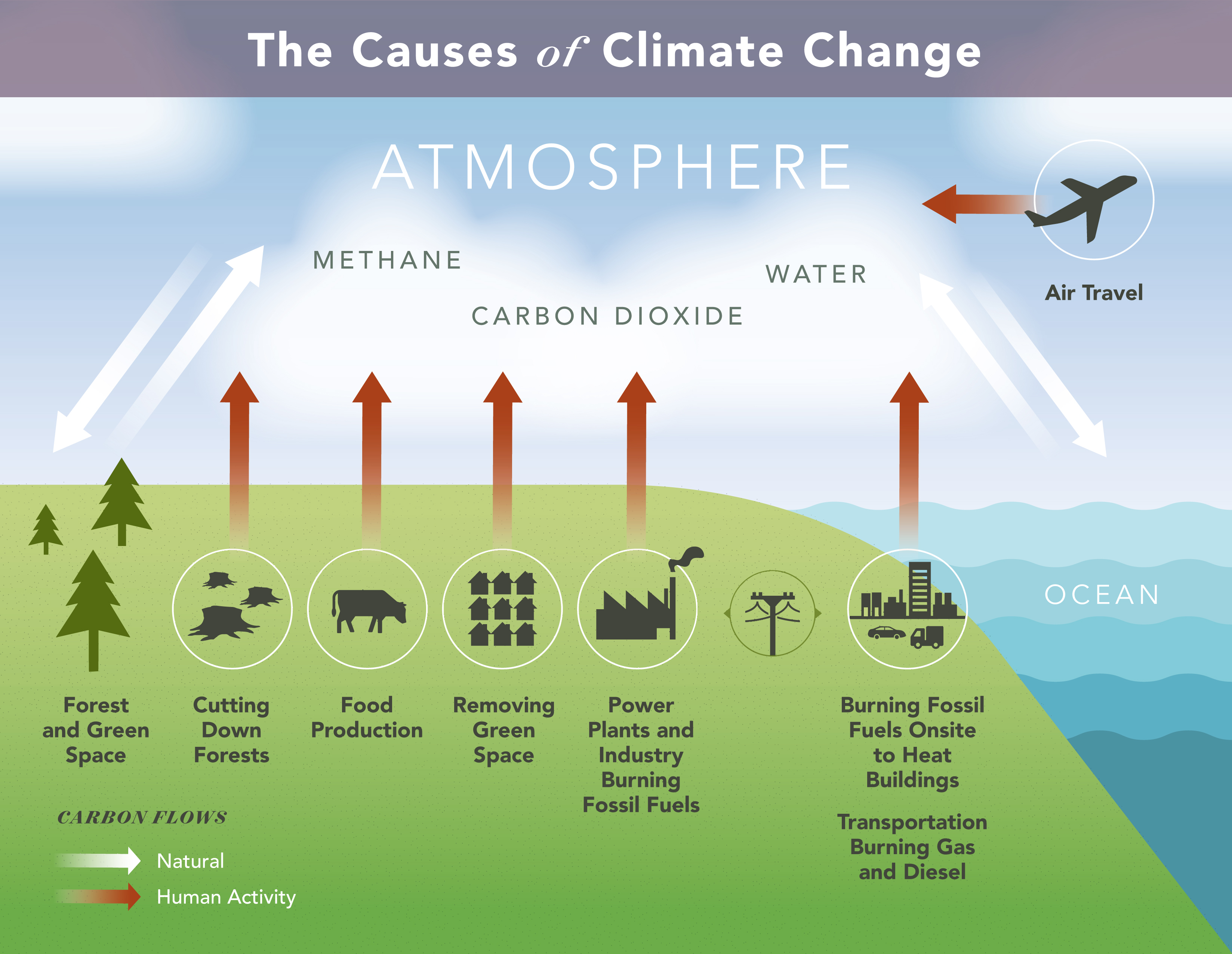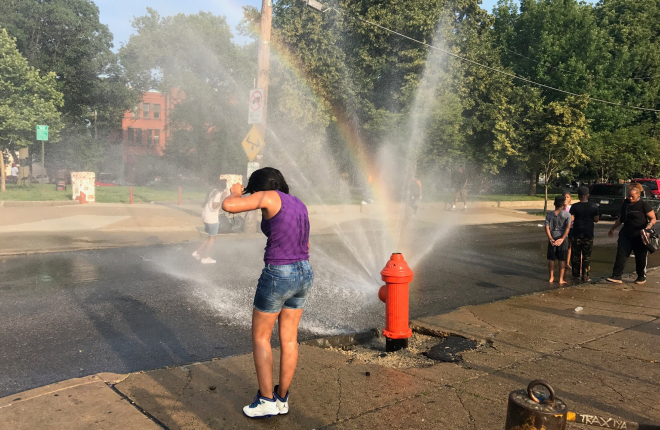Preparing for the weather can make or break your day, and being unprepared can be downright dangerous. We know from experience that weather patterns in Philadelphia are getting hotter, wetter, and more extreme, and climate science tells us these trends will continue to get worse. A central vision of Greenworks is that all Philadelphians are prepared for our changing climate.
Why is our climate changing?

In the past, the natural carbon cycle kept our planet at a steady temperature.
Since the Industrial Revolution, humans have changed this cycle by burning fossil fuels (including coal, oil, natural gas, and gasoline) at a rapid rate, releasing more carbon dioxide (CO2) into the atmosphere than can be handled by natural systems.
This excess carbon dioxide in our atmosphere acts like a blanket, trapping heat on Earth, leading to higher temperatures, melting ice, and rising seas. To better understand the complexities of climate change, read more.
What will climate change mean for Philadelphia?
Climate change is a global challenge, but our warming planet will bring distinct changes to different parts of the Earth. In Philadelphia, climate change will have two major impacts: hotter temperatures and more precipitation.
Philadelphians are already accustomed to our sticky, humid summers, but climate change will make the worst of these days more frequent. In an average summer during the 1900s, we experienced four days above 95 degrees. By 2100, we could face as many as 52 days above 95 degrees.
A changing climate will also make precipitation more common and heavier in Philadelphia in all four seasons. Unfortunately, climate change won’t lead to fewer days shoveling snow in the Philadelphia winters to come!
Global climate change will have other local effects. Melting ice caps will bring higher riverfronts, which may lead to increased flooding along the Schuylkill and Delaware Rivers. Climate change will also make extreme storms more common, meaning more events like Hurricanes Irene and Sandy in all seasons.
How is the city preparing for the impacts of climate change?
How do we know all this? The Office of Sustainability (OOS) worked with scientists to use global models to assess the impacts of climate change for the Philadelphia region. This analysis is summarized in the Useful Climate Information for Philadelphia report.
The scientists’ models considered scenarios where we slow the burning of fossil fuels and others where we continue to emit carbon at a similar rate to the past. If we take climate action now, we can reduce future harm from climate change in Philadelphia. That’s why climate action is a core value of Greenworks: A Vision for a Sustainable Philadelphia and the forthcoming citywide energy vision.
But we know that even if we reduce carbon pollution, Philadelphia’s climate will still change. In fact, we’re experiencing the impacts of climate change in our city already. To ensure the City continues to provide essential services to residents as the climate changes, a Climate Adaptation Working Group made up of many City departments released Growing Stronger, which details actions city government can take to adapt to the changing climate.
What can I do?
Individuals, community groups, and institutions (including businesses, schools, and houses of worship) can all act to combat climate change. To learn more about what you can do, check out Greenworks on the Ground and the Environmental Action Guide.

